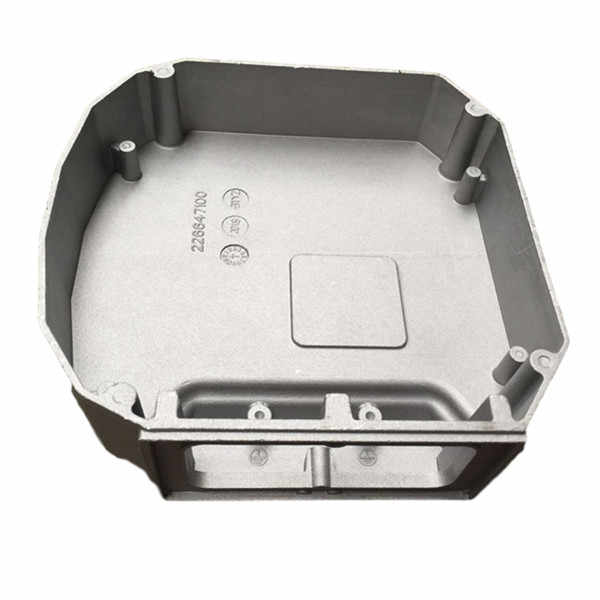4 Simple Techniques For Alcast Company
4 Simple Techniques For Alcast Company
Blog Article
The Ultimate Guide To Alcast Company
Table of ContentsAlcast Company Can Be Fun For AnyoneThe Alcast Company DiariesThe 9-Second Trick For Alcast Company9 Simple Techniques For Alcast CompanySome Known Questions About Alcast Company.Indicators on Alcast Company You Should Know
The subtle difference depends on the chemical content. Chemical Comparison of Cast Aluminum Alloys Silicon advertises castability by reducing the alloy's melting temperature and enhancing fluidity during casting. It plays a crucial duty in enabling complex molds to be filled accurately. Additionally, silicon adds to the alloy's stamina and wear resistance, making it valuable in applications where durability is vital, such as vehicle parts and engine elements.It additionally enhances the machinability of the alloy, making it less complicated to process right into completed products. In this means, iron contributes to the overall workability of aluminum alloys.
Manganese adds to the toughness of light weight aluminum alloys and enhances workability (aluminum foundry). It is typically utilized in wrought light weight aluminum products like sheets, extrusions, and accounts. The existence of manganese aids in the alloy's formability and resistance to breaking during fabrication processes. Magnesium is a light-weight component that provides strength and influence resistance to light weight aluminum alloys.
The Alcast Company PDFs
It allows the production of light-weight components with outstanding mechanical properties. Zinc boosts the castability of aluminum alloys and helps control the solidification process throughout casting. It improves the alloy's stamina and solidity. It is commonly located in applications where intricate shapes and fine information are needed, such as decorative spreadings and specific automotive components.

The main thermal conductivity, tensile strength, return toughness, and elongation vary. Among the above alloys, A356 has the highest possible thermal conductivity, and A380 and ADC12 have the lowest.
Little Known Questions About Alcast Company.

In accuracy spreading, 6063 is appropriate for applications where detailed geometries and high-quality surface finishes are critical. Examples include telecommunication enclosures, where the alloy's premium formability enables streamlined and aesthetically pleasing designs while keeping architectural integrity. In a similar way, in the Lighting Solutions sector, precision-cast 6063 parts create stylish and effective lighting fixtures that need detailed forms and excellent thermal performance.
It causes a finer surface coating and much better rust resistance in A360. Moreover, the A360 displays superior prolongation, making it perfect for facility and thin-walled elements. In precision spreading applications, A360 is appropriate for sectors such as Consumer Electronics, Telecommunication, and Power Tools. Its improved fluidity enables elaborate, high-precision components like smart device cases and interaction device real estates.
About Alcast Company
Its unique residential properties make A360 a useful selection for precision spreading in these industries, improving item toughness and top quality. Aluminum Casting. Aluminum alloy 380, or A380, is a commonly used spreading alloy with a number of distinct qualities.
In precision casting, light weight aluminum 413 shines in the Consumer Electronics and Power Tools markets. It's frequently utilized to craft elaborate elements like mobile phone real estates, electronic camera bodies, and power device housings. Its precision is impressive, with tight tolerances up to 0.01 mm, guaranteeing perfect item assembly. This alloy's premium rust resistance makes it a superb selection for outside view it now applications, guaranteeing resilient, durable products in the pointed out markets.
Some Ideas on Alcast Company You Need To Know
When you have chosen that the aluminum die casting procedure appropriates for your task, a critical following action is selecting one of the most suitable alloy. The aluminum alloy you pick will considerably influence both the spreading process and the properties of the final item. Since of this, you must make your decision meticulously and take an enlightened method.
Determining the most appropriate light weight aluminum alloy for your application will certainly suggest considering a broad selection of qualities. These relative alloy features comply with the North American Pass Away Casting Organization's guidelines, and we've divided them right into 2 categories. The first category addresses alloy qualities that influence the production procedure. The 2nd covers attributes influencing the buildings of the final item.
Alcast Company Things To Know Before You Buy
The alloy you select for die casting straight impacts a number of elements of the casting procedure, like exactly how very easy the alloy is to collaborate with and if it is vulnerable to casting issues. Hot breaking, additionally referred to as solidification cracking, is a typical die spreading problem for aluminum alloys that can lead to internal or surface-level rips or fractures.
Certain light weight aluminum alloys are much more vulnerable to warm breaking than others, and your option must consider this. Another usual issue discovered in the die spreading of aluminum is die soldering, which is when the cast stays with the die wall surfaces and makes ejection hard. It can damage both the actors and the die, so you must look for alloys with high anti-soldering residential properties.
Corrosion resistance, which is currently a remarkable quality of light weight aluminum, can differ considerably from alloy to alloy and is a necessary characteristic to take into consideration depending on the ecological problems your product will be exposed to (Casting Foundry). Put on resistance is another residential property generally looked for in aluminum items and can separate some alloys
Report this page